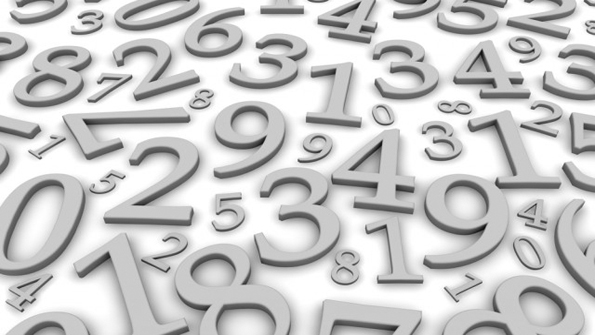Every reviewer needs one of these, right? A page that tediously lays out what each number signifies, only to have it probably bite the author in the back when someone claims a given rating contradicts the description given? Can’t wait for that.
So what’s this 12-string jangle? How do you appraise what you review?
Generally I don’t go into a review with a specific rating in mind. If I’ve heard the album before, I’ll usually listen to it twice: the first time to refresh my memory, the second time for the actual song-by-song analysis. If I’ve never heard the album before, it gets at least three listens, usually more. It’s only after I’ve written the rough draft of the review that I begin to give out my categorical ratings.
Dafrik are categorical ratings?
Exactly what they sound like. I break down the various aspects of an album and assign a rating on a five point scale. If you’re familiar with the old George Starostin site and his artist ratings, just imagine them applied reworked to apply to albums because I like stealing ideas from far more well-known, smarter reviewers. The categories, as I define them, are as follows:
Music was originally titled Listenability, but I found that label too restrictive. This refers to the amount of sonic satisfaction the album brings to my ears. Melody, vocals, production, playing ability, the whole shebang. Note this does not mean that all albums have to be PLEASANT or ACCESSIBLE, they simply have to succeed in what they set out to do soundwise. Albums not meant to be pleasant have to walk a fine, fine line. When I sit down to listen to a piece of music, I have to get something out of it, otherwise the album is useless. This is probably the most subjective of all the categories, and if you disagree with me on anything it will probably be here.
Themes refers to the musical and conceptual ideas that the album builds itself around. This usually refers to the topics of the songs, but recently I’ve expanded my understanding of it to include the creative flourishes of the production and composition. If it’s a concept album, this is the category where the concept is judged.
Lyricism refers to how well the writing works. Lyrics have a lot of goals that vary from artist to artist, and I won’t pretend that I’m able to list everything they can do, but for me lyrics fall into three very general categories, with overlap aplenty. The first is lyrics to study. These are songs that try to, in some way, be ABOUT something. They might touch on an issue, examine an emotion, satirize a style, or reflect on an event. The second category is lyrics to immerse in. These generally need to be helped by the music, but the idea is to sweep you away by description of pure sensation. Love songs are supposed to make you feel giddy, fantasy songs are supposed to take you to other worlds, tragic ballads are supposed to make you cry, comedy songs are supposed to make you laugh, anthems are supposed to make you rally. The last category is lyrics to marvel at. These are lyrics that run on the rule of cool. Wordplay, euphony, cacophony, rhyme, meter…this category employs any/all of this things to make you go “Woah. Somebody sat down and wrote that.” This is extremely common in rap and other word-centric genres.
Diversity refers to how colorful the album is, in music and in lyrics. It’s not the goal of every album to be a rainbow of styles, but one thing an album should never be is boring. Vary up the tone, the style, the focus, ANYTHING, and the listener will keep listening.
Resonance is the single most important category for me. It refers to how anchored an album is emotionally. Art is nigh-impossible to define, but the one thing all art has in common is that it’s supposed to elicit an emotional response from the people who consume it. I divide this category in half. The first half is the emotion it gets out of me. The second is the emotion put into the work by the creator(s). You have to CARE about what you’re writing, singing, painting, playing, designing, directing, producing, whatever. An apathetic artist doesn’t make art, they kill it. The second most subjective category.
Okay cool. So what’s with the five point scale?
0 means the category is not applicable. For example, if I was reviewing an instrumental album, it wouldn’t have any lyrics. No category will actually get this rating, because if one of the categories doesn’t apply I will simply drop it from evaluation.
1 means the album either doesn’t work at all or just doesn’t try in this aspect.
2 means the album has moments where this aspect shines, but it’s not a selling point.
3 means the album handles the aspect inconsistently, but overall serviceably.
4 means the album pays a lot of attention to this aspect, and succeeds admirably.
5 means this is a major selling point of the album, something the artists went out of their way to polish to near-perfection.
What’s this “Experience” nonsense?I play with metaphors and imagery to try to sum up the sound of the album. It’s mostly to amuse myself.
So how about them overall ratings?
Oh. Yes. Them.
0 means the album doesn’t exist, because there is no such thing as a completely irredeemable album. No album will ever get this rating, no matter how much I’d like to give it.
1 means the album is an unmitigated, apocalyptic, life-destroying tragedy. It was made by people who were either extremely unattached to their work or Neo-Nazi levels of misguided. The world of music is a worse place because of the existence of this album, and its highs are fleeting moments of mediocrity to be savored whenever they happen. This rating is not to be given lightly and represents a lapse of artistic taste so offensive it’s not even worth learning from as a bad example.
2 means the album is a disaster, a largely intolerable collection of notes that might theoretically be called “music.” An album of this rating borders on the corners of offensive and apathetic, creating a mellow, wishy-washy, worthless experience.
3 means the album is a mess, made by incompetent people doing a bad job, but might be useful as an example of “what not to do.” An album of this rating is usually bad because the people who made it just didn’t care, making it more boring and detached then anything else.
4 means the album is bad, but just competent enough that its flaws are easy to analyze. This makes it a great example of “what not to do”, as an album of this rating isn’t bad enough to get angry at or deem “unlistenable.” This is just your run-of-the-mill bad album, one you can probably have a good laugh at but will probably forget about in a week.
5 means the album is absolutely mediocre. The highs are amusing, the lows are annoying, but as a whole it’s not worth remarking on. An album of this rating, perhaps more then any other, is useless. It didn’t have a negative impact on me, it didn’t have a positive impact on me, it just exists for its own sake, and that’s frustrating.
6 means the album is average and inoffensive. It’s the musical equivalent of reheated fast food, or a January horror movie, or a magazine on a checkout stand: completely unremarkable, lacking in vision or purpose, digested as easily as it is forgotten. That being said, they can be a nice distraction if you’re in the mood. If you don’t feel like committing to a complex hour-long prog masterpiece or having your heart torn out by a collection of bitter breakup songs, you might need a bit of light-and-airy guilty pleasure fodder. We all need some effortless easy-listening sometimes.
7 means the album is good, a competent and enjoyable listen. There are frustrating glimmers of potential greatness that are never realized, but for the most part you can pop these albums in and enjoy them with no reservation, even if you skip a few crappy songs. If the album aligns with your interests or sounds like something you would enjoy, go ahead and buy it, you won’t be disappointed.
8 means the album is very good all around, and reaches greatness enough times to impress. There might be missteps, but they’re not enough to drag it down. An album of this rating should be given a shot by anyone and everyone, regardless of taste.
9 means the album is consistently great, with several astounding moments of brilliance. An album of this rating is something to be marveled at and studied, but also enjoyed for pleasure. Buy this album today.
10 means the album is an essentially perfect realization of exactly what it wants to be. It was made by passionate people who knew their vision and managed to deliver that vision in a delightful package that shivers with pure artistic zeal. An album of this rating gets the masterpiece tag.
10+ An album of this rating isn’t perfect, not only because there’s no such thing as a perfect album, but because “perfect” is too mild a word. This album is TRANSCENDENT, a work where all the elements combine to form something much greater then the sum of their parts, something you would think unattainable by human beings. These are lush, idea-filled, poetic, colorful, heart-bleeding albums which don’t come along often. They receive the cosmic masterpiece tag.
That, or I just have a big personal connection to it. Both help.

